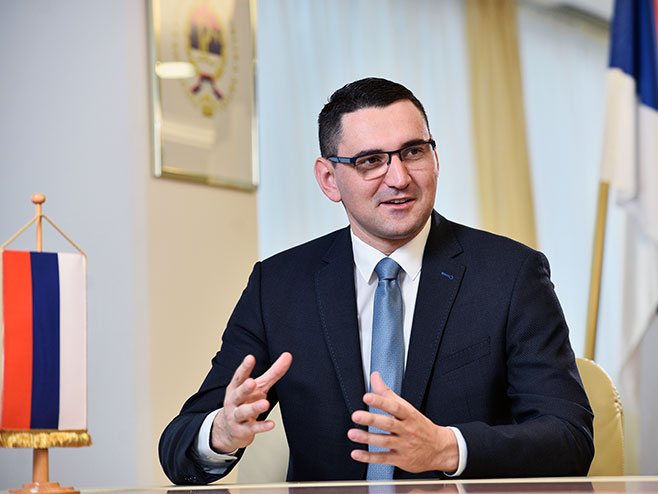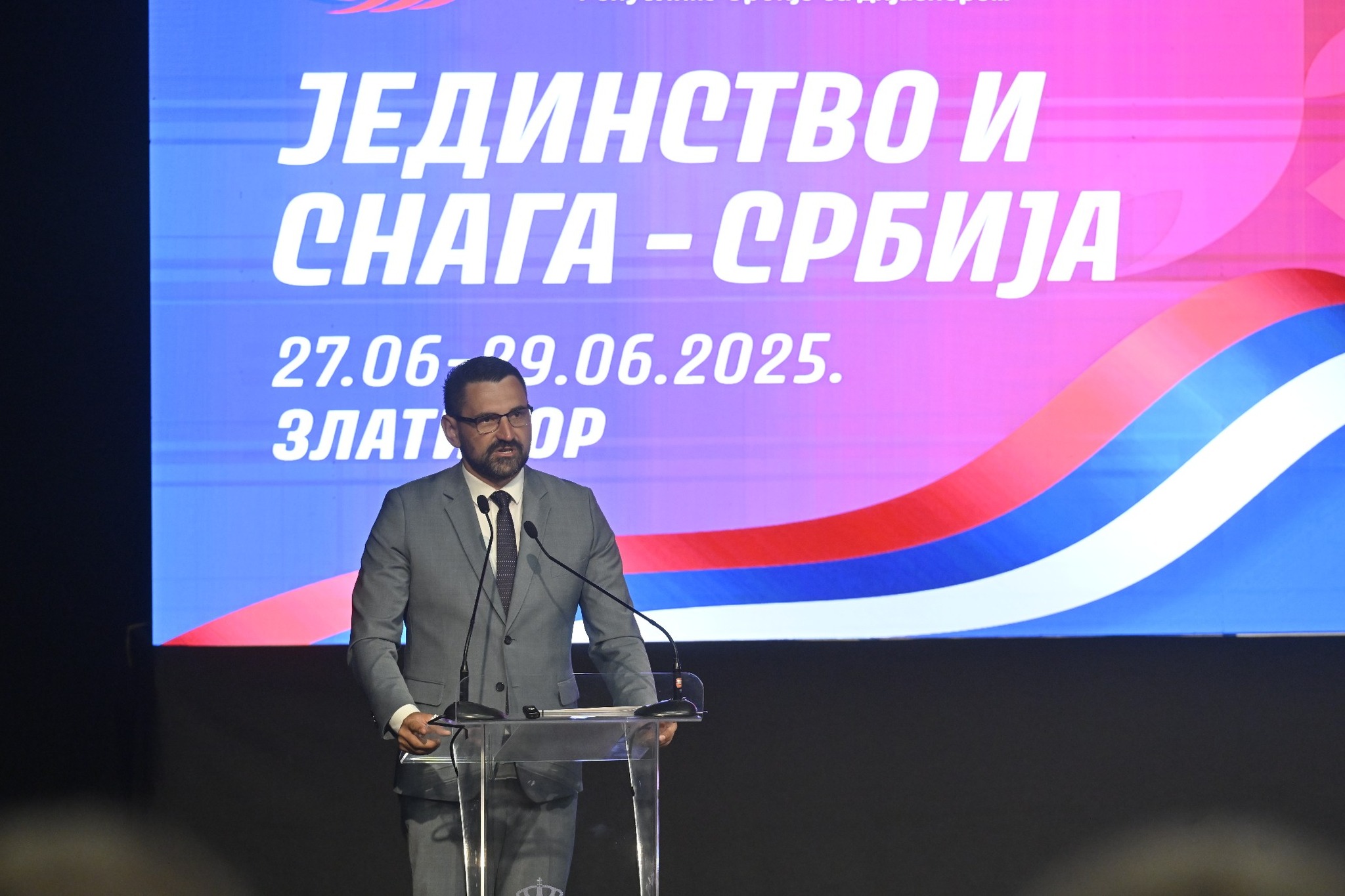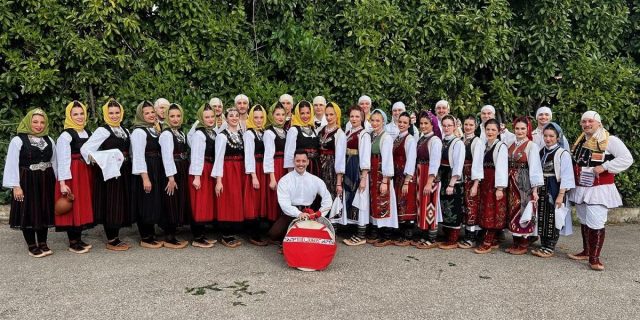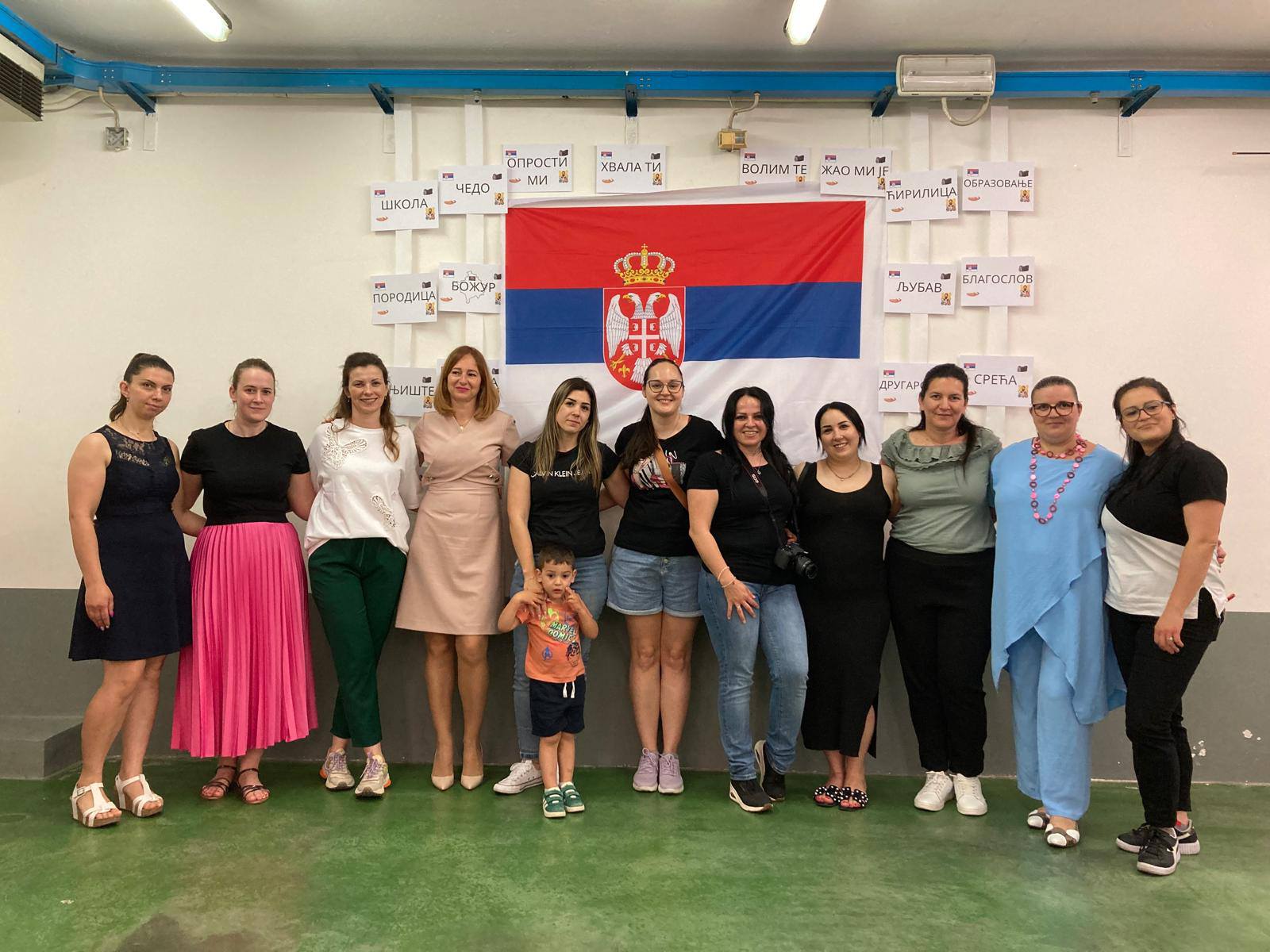The Minister of European Integration and International Cooperation of the Republic of Srpska, Zlatan Klokić, said in an interview for Srna that creation of a diaspora register was underway, as a comprehensive record of emigrants and their associations abroad.
- To enable our activities to cover as many compatriots abroad as possible, the Ministry of European Integration and International Cooperation of the Republic of Srpska has started creating preconditions for mapping human resources of the diaspora - said Klokić.
According to him, the purpose of the register is to systematically consolidate information about the diaspora in order to adequately plan activities and strengthen cooperation with the diaspora.
Klokić said that a decree was being drafted to set the legal framework for the establishment of such a register, and then the emigrants would be invited to register through the media and with the support of Srpska’s representative offices abroad.
Entry of a significant number of emigrants and associations in the register will provide a better picture of diaspora’s presence in certain countries.
FINAL PHASE OF ACTION PLAN DEVELOPMENT - TEXT FINALIZATION
He pointed out that development of an action plan was in the final phase, aimed at specifying the planned activities from the Strategic Plan for Cooperation with the Diaspora.
- Finalization of the text of that document is in progress after all competent institutions have submitted their proposals - Klokić explained.
The action plan defines precisely the activities of the republic institutions, deadlines and indicators that will enable beginning of implementation of individual activities, and focuses on the priorities from the Strategic Plan for Cooperation with the Diaspora.
Klokić said that this included strengthening of the overall relations with the diaspora, preserving the national identity, economic development, cooperation in the fields of science and innovation, and in the field of youth and sports.
ENGAGE CAPACITIES TO POSITION AND PRESENT SRPSKA
Klokić expressed satisfaction with the work of the Republic of Srpska representative offices abroad, which continuously engage their capacities to better present and position Srpska in their host countries.
He added that various activities were underway to strengthen institutional cooperation, as well as those in the field of economy, science, education and culture, and those aimed at strengthening ties with the diaspora.
- Regarding last year, the outbreak of the coronavirus pandemic had affected significantly the activities of the representations which focused on providing humanitarian and other forms of assistance to the Republic of Srpska and its citizens who were referring to them often. This confirmed once again the importance of the representations for Srpska as a whole - Klokić emphasized.
He reminded that, on the initiative of the Serb member of the Presidency of BiH Milorad Dodik, and in cooperation with the Republic of Srpska Representation in Russia, Srpska’s Ministry of European Integration and International Cooperation had organized and covered the costs of a humanitarian flight Belgrade-Banja Luka-Moscow which evacuated citizens of the Republic of Srpska and Serbia from Russia, a total of about 140, mostly students. Also, about 90 Russian citizens who found themselves in the Republic of Srpska and Serbia after the outbreak of the pandemic were returned to their home country.
Klokić also noted that, in cooperation with the Republic of Srpska Representative Office in the US, the Ministry was involved in organizing the return of a group of students from Srpska who had found themselves on exchange programs in the US.
- The Representation of Srpska in Serbia conducted activities related to support regarding healthcare of citizens of the Republic of Srpska under the conditions of closed borders - special permits were provided for crossing the border and transporting patients for treatment to and from health institutions in Serbia /it facilitated obtaining of 64 permits for medical transport of patients across the border/ - said Klokić.
He added that the Representation participated in coordinating the activities related to eliminating problems in cross-border transport of goods, procurement of necessary funds for health protection of the population, and other support activities.
Klokić emphasized that the Representative Office of the Republic of Srpska in Austria would continue the activities on promoting economic potentials and investment projects of Srpska, including organization of business forums and meetings aimed at connecting businessmen.
The Republic of Srpska Representation in Greece will continue implementing the Invisible Heroes project started last year with the aim of further strengthening of ties between the Serbian and Greek people created during the past civil war in BiH.
Klokić announced that making of a documentary film on this topic was planned by the end of the year.
SRPSKA’S REPRESENTATIVES ACTIVELY WORKING ON 14 KEY PRIORITIES
Speaking about what has been done on the 14 key priorities from the Opinion of the European Commission on the application for BiH’s membership in the EU, Klokić said that representatives of the competent institutions of the Republic of Srpska were actively involved in drafting this strategic document.
- Considering that part of the measures in the Action Plan could not be agreed at technical level, the Commission for European Integration concluded to refer the document to higher bodies of the coordination mechanism, i.e. to ministerial conferences, and possibly to the Collegium for European Integration - said Klokić.
He noted that certain things had been completed so far - the Parliamentary Assembly of BiH had adopted amendments to the Election Law of BiH regarding elections in Mostar, which were held in December last year; drafting of the Programme of Integration of BiH into the EU had started; and adoption of the Rules of Procedure had created conditions for functioning of the Stabilisation and Association Parliamentary Committee.
The Revised National War Crimes Processing Strategy was also adopted; the article on the death penalty of the Constitution of the Republic of Srpska was abolished; while the Government of the Republic of Srpska adopted a strategic framework for public administration reform 2018-2022.
- The candidate status of BiH largely depends on fulfilment of the 14 key priorities from the Opinion of the European Commission, while the final decision depends on the EU - said Klokić.
He noted that the Government of the Republic of Srpska was committed to the European path and future EU membership and was an active participant in fulfilling the requirements of this process and in creating solutions for their implementation, in accordance with its constitutional position and competencies.
Klokić said that the Ministry of European Integration and International Cooperation of the Republic of Srpska had been coordinating the process of harmonization of Srpska’s regulations with EU regulations since 2007, and that since then until the end of January this year, a total of 3,658 regulations - draft and proposal laws and bylaws had ‘passed’.
Source and photo: SRNA





